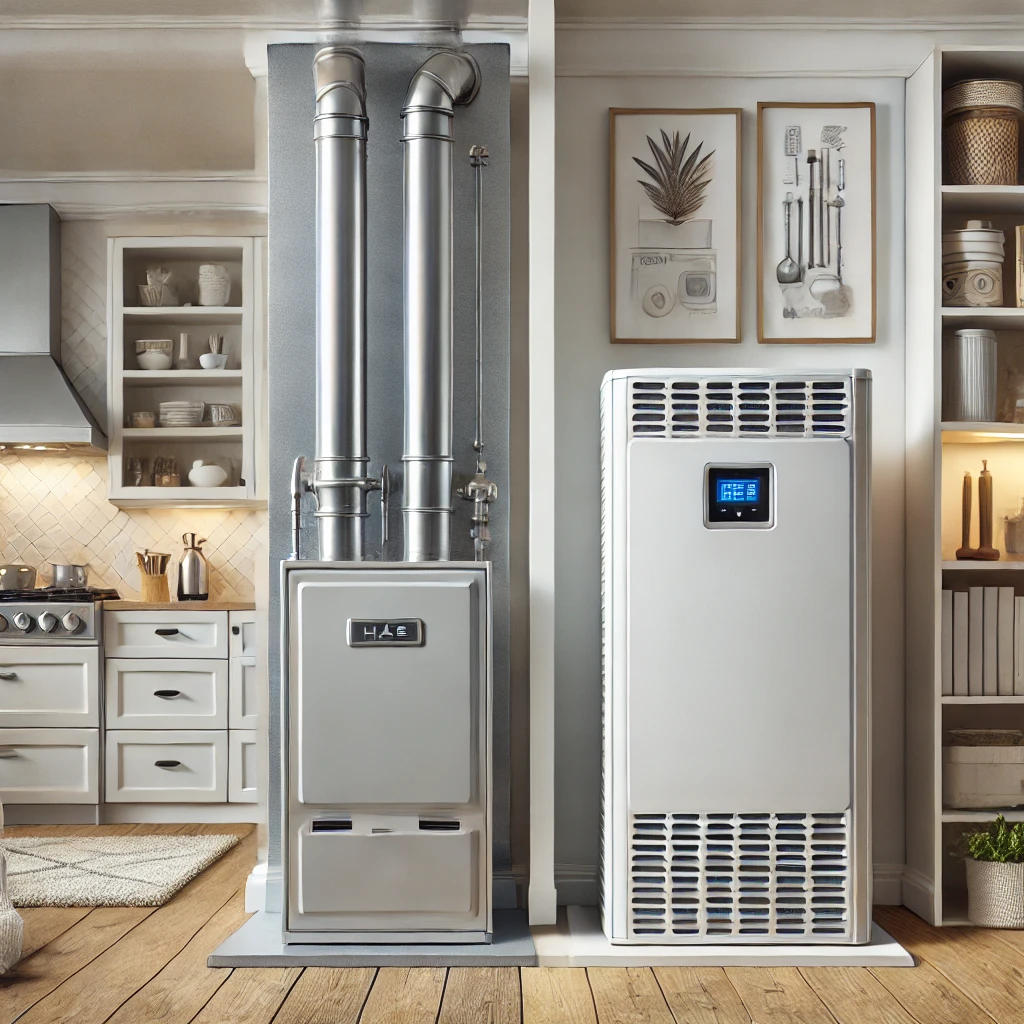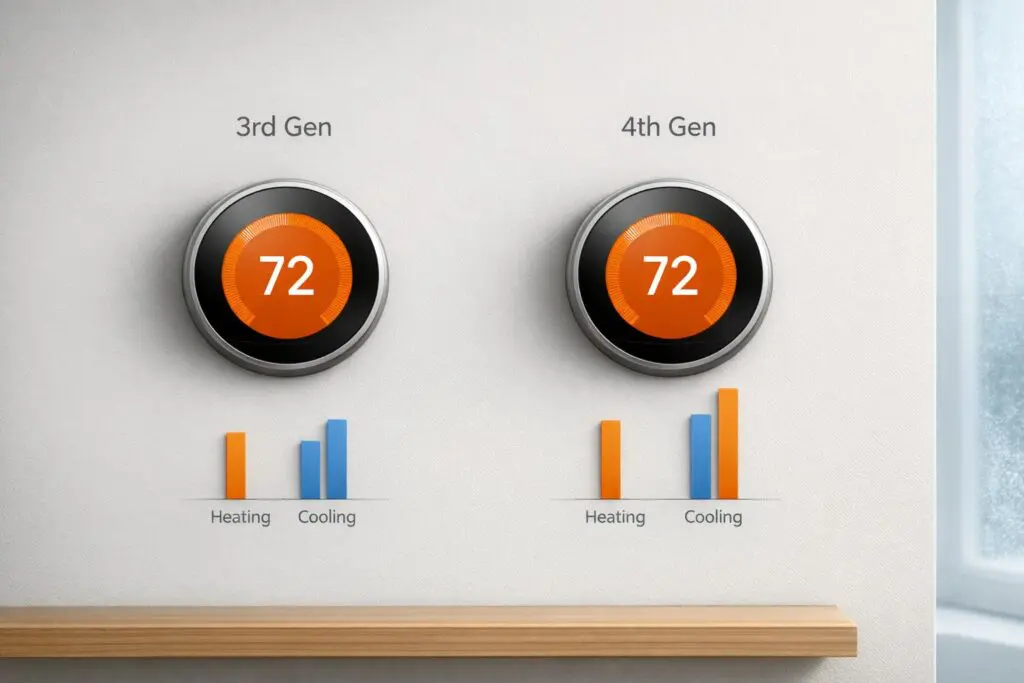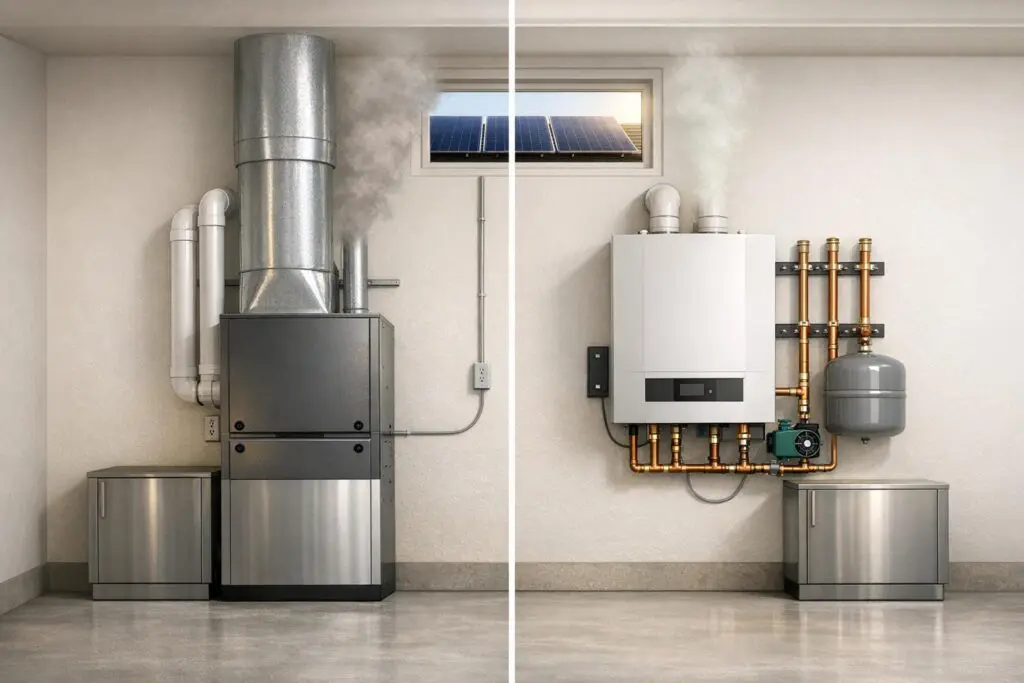Choosing Between Gas and Electric Furnaces
Deciding on the right furnace for your home can feel overwhelming. Two of the most common options are gas furnaces and electric furnaces, each with its unique advantages. At Eco Temp HVAC, we’re here to guide you through the decision-making process to ensure you choose the perfect heating solution for your needs.
How Gas Furnaces Work
Gas furnaces operate by burning natural gas to create heat, which is then distributed throughout your home via ducts. They are a popular choice for homeowners in areas with access to natural gas, thanks to their efficiency and lower operational costs during cold months.
Pros of Gas Furnaces
- Cost-Effective Heating: Natural gas is generally less expensive than electricity, making gas furnaces a budget-friendly option.
- Powerful Heat Output: Gas furnaces heat your home quickly, making them ideal for colder climates.
- Compatibility: Many homes already have gas lines installed, making installation straightforward.
Cons of Gas Furnaces
- Higher Upfront Costs: Gas furnaces typically cost more to install compared to electric models.
- Maintenance Requirements: Regular maintenance is essential to ensure safety and efficiency.
- Environmental Impact: Burning natural gas produces greenhouse gases, which can contribute to climate change.
How Electric Furnaces Work
Electric furnaces use electricity to heat coils, which then distribute warm air throughout your home. These systems are easy to install and are a great option for homes without access to natural gas.
Pros of Electric Furnaces
- Lower Installation Costs: Electric furnaces are generally cheaper to install than gas furnaces.
- Minimal Maintenance: With fewer components, electric furnaces require less maintenance.
- Environmentally Friendly: When paired with renewable energy sources, electric furnaces can be a green heating option.
Cons of Electric Furnaces
- Higher Operating Costs: Electricity is often more expensive than natural gas, leading to higher monthly bills.
- Slower Heating: Electric furnaces take longer to warm your home compared to gas models.
- Limited Effectiveness in Extreme Cold: Electric furnaces may struggle to provide sufficient heat in very cold climates.
Factors to Consider When Choosing a Furnace
To decide between a gas or electric furnace, consider the following:
- Climate: Gas furnaces are better for colder regions, while electric furnaces may suffice in milder climates.
- Energy Costs: Compare local gas and electricity rates to determine which option is more affordable in your area.
- Environmental Impact: Electric furnaces powered by renewable energy are a greener option.
- Installation Costs: Factor in the upfront cost of the unit and installation.
- Existing Infrastructure: If your home has a gas line, a gas furnace may be the more practical choice.
Which Furnace is Right for You?
The choice between a gas and electric furnace depends on your specific needs, preferences, and budget. Both options have their advantages, and the experts at Eco Temp HVAC can help you make the best decision. Whether you prioritize cost savings, environmental impact, or performance, we’ll ensure your heating system is tailored to your home.
Schedule a Consultation Today
Ready to upgrade your home’s heating system in Chicago? Contact Eco Temp HVAC for a personalized consultation. Our experienced technicians are here to provide expert advice and professional furnace installation for all your heating needs. Call us at (224) 253-8131 or book online today!












